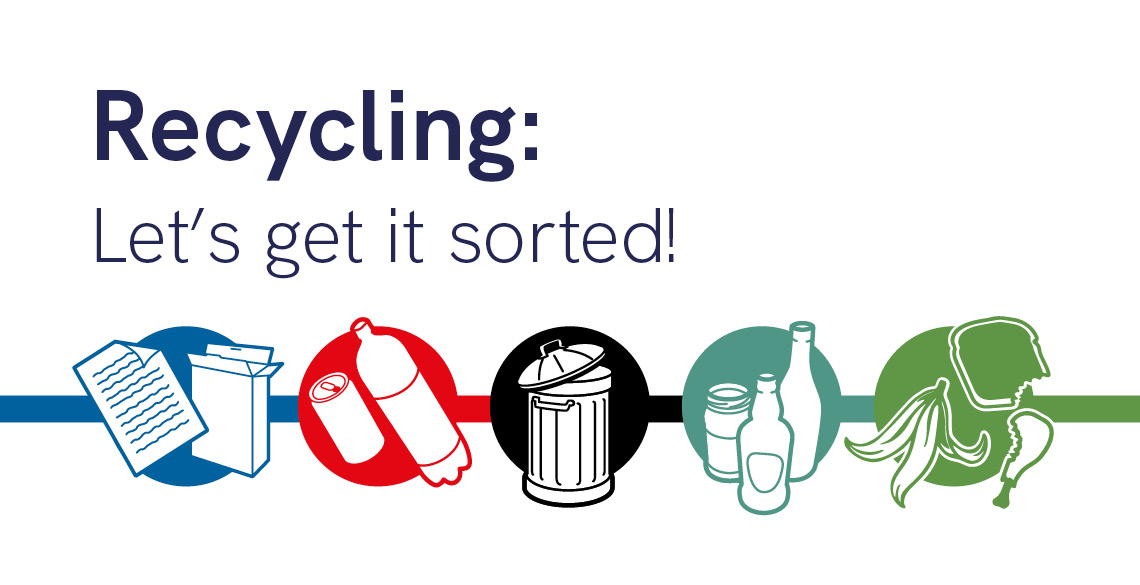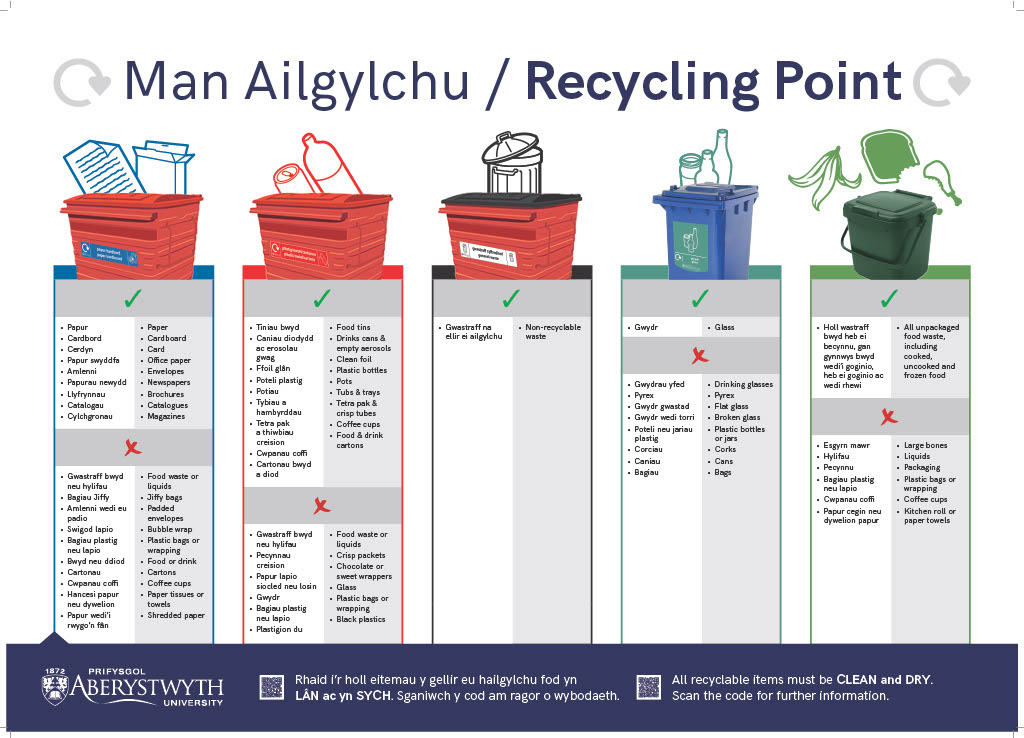Waste

In April 2024 the Welsh Government introduced the Workplace Recycling Legislation. The law requires all workplaces, including businesses, public bodies and the third sector, to separate these recyclable materials from their general waste.
- Food leftovers or waste generated by food preparation
- Paper and card such as old newspapers and envelopes, delivery boxes and packaging
- Metal, plastic, and cartons and other similar packaging (for example coffee cups)
- Glass such as drinks bottles and food jars
- Unsold textiles such as clothing and non-clothing
- Unsold small waste electrical and electronic equipment (sWEEE)
Let's all do our part to keep our campus and our planet clean and green. Together, we can make a difference. Let's get it sorted!

